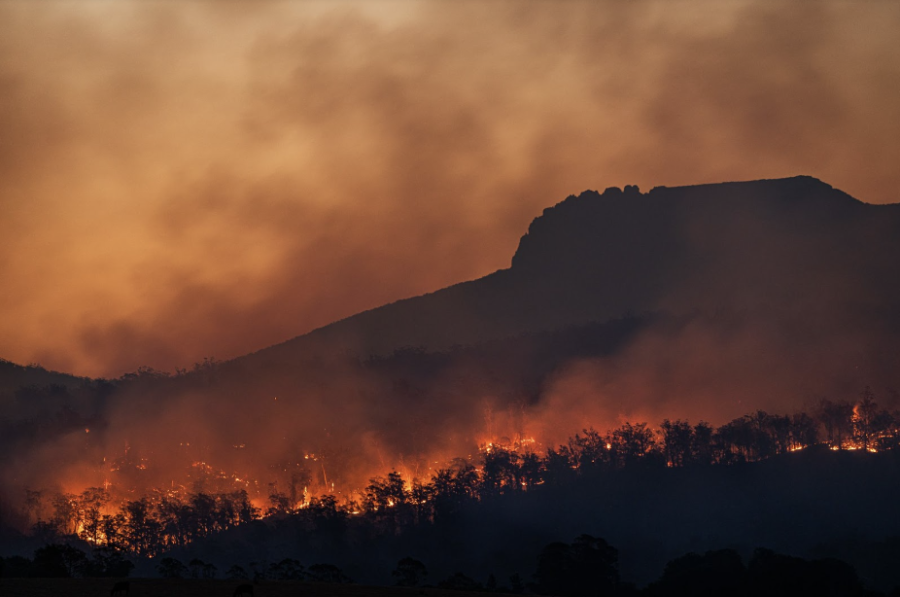Climate Change is Serious
Photos courtesy of Matt Palmer on Unsplash.com
Devastating Forest Fires are just one of the many devastating events due to climate change
Climate change is a very serious issue that has many effects on people’s daily lives. Climate change refers to gradual changes in temperatures and weather patterns over an extended period of time. These shifts can be natural but since the 1800s, human activities have been the main spearheads of climate change, mostly due to the burning of fossil fuels (like coal, oil, and gas) which produce heat-trapping gasses. Warmer temperatures are causing changes in weather patterns, which is disrupting the delicate balance of nature. These shifts will have serious consequences for human beings and all other forms of life on Earth.
There are numerous effects that have been observed as a result of climate change. These effects include the following:
The warming and rising ocean: The ocean soaks up most of the heat from global warming. This melts ice sheets and raises sea levels, threatening coastal and island communities. The ocean also absorbs carbon dioxide, keeping it from the atmosphere. More carbon dioxide makes the ocean more acidic, which endangers marine life.
Loss of species: As the temperature gets higher and higher, the environment will inevitably be affected. Extreme weather, forest fires, and disease are some of the many threats to wildlife that result from climate change. Not all species will be able to survive in the long run.
Hotter temperatures: Almost all land areas are getting more heat waves and hot days. 2020 was one of the hottest recorded years. Wildfires can start and spread more easily and heat related diseases are more prone to occuring due to the extreme heat.
Increased health risks: Diseases that spread more in hotter conditions like malaria are more likely to grow because of the changing weather. Extreme weather conditions increase illness and death and it will inevitably increase to the point where the health system cannot keep up. Because of the heat people in some places might not be able to find or grow an adequate amount of food to eat. Crops, livestock, and fisheries may eventually become less productive or even be destroyed. The stress of the heat can reduce water and grasslands for grazing. This leads to poor nutrition and increased hunger.
Increased drought: The heat is drying up our water supply and water on land is slowly becoming more scarce. Deserts are also expanding because of this reason and this diminishes the land that could be used for farming. If this continues then a basic necessity like water will be unattainable for people.
Poverty and Displacement: Many factors that put and keep people in poverty are amplified because of climate change. Heat that makes working outside arduous and natural disasters that destroy homes and towns are all things that increase poverty. The changes in temperature cause more recurrent storms which will certainly increase in intensity if there is no change. These severe storms can cause flooding and landslides which eradicate communities and homes. These disasters displace about 23 million people per year and make them susceptible to poverty.
The increasing severity of the climate change situation can be seen very clearly in the recent earthquake in Turkey and Syria. On February 6, 2023, a 7.8 magnitude earthquake hit Turkey and Syria. As of now, more than 22,000 people have been reported dead and tens of thousands of people have been injured. At least 370,000 people have been displaced and about 24 million people have been affected. Now, rescue teams are battling the freezing temperature trying to free people from the rubble while many families are homeless and hungry thanks to the tragedy. This situation is an example of the devastation climate change can bring. We need to bring awareness to this issue so that disasters like the one we are facing right now wont happen again.
Sources: https://www.un.org/en/









